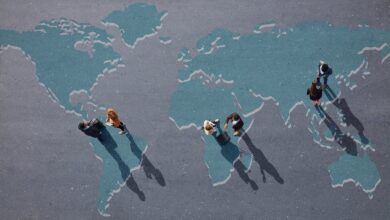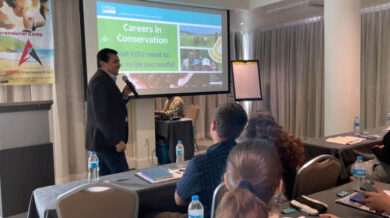The entrepreneur trying to make thrifting truly eco-friendly with AI

Running an online thrifting business is extremely labor-intensive as human intervention is required to sort, price, label, and list each pre-loved item. Swag Kicks, one of Pakistan’s largest online thrift companies, has overcome this hurdle by developing a tool that uses artificial intelligence and machine learning to automate its processes.
The company’s CEO and co-founder, Nofal Khan, believes AI can make the industry truly eco-friendly.
This interview has been edited for clarity and brevity.
What was the problem you were trying to solve?
We initially identified a pressing local issue: the limited accessibility of high-quality sneakers at affordable prices for young Pakistanis. Millennials and Gen Z were aware of global fashion trends via social media but lacked access to these products. To bridge this gap, we offer sneakers and streetwear from global brands at a fraction of the cost. This has democratized fashion access and breathed second life into used sneakers and apparel, preventing them from ending up in landfills.
What was the biggest challenge you faced while launching the company?
As we expanded, we encountered the challenge of effectively managing pre-loved fashion inventory. Each product demanded individual inspection for sorting, grading, and photographing. Manual pricing often led to missed revenue opportunities due to underpricing.
With no existing tech solution to scale an online thrift business, we developed our proprietary tech called ThriftOps, which automates operations efficiently using AI and machine learning. ThriftOps automates the crucial, labor-intensive processes inherent in the thrift industry.
Is your industry portrayed inaccurately in the media in any manner?
While thrift is commonly perceived as eco-friendly, the reality is far from ideal. The thrift life cycle begins with individuals donating apparel to charities. With only a small portion sold in local charity storefronts, the remainder is shipped off in containers to countries like Pakistan for manual sorting and grading, only to be sent back to markets in North America, Europe, Latin America, and Africa. This extensive travel contributes to significant carbon emissions and contradicts the sustainability ethos of thrift.



